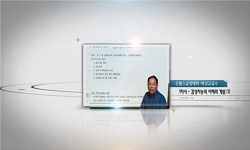유머 유형에는 사회적, 자기고양적, 공격적, 자멸적 등의 4 유형이 있는데, 앞의 두 유형은 정신건강과 대인관계적응에 유리하지만 뒤의 두 유형은 오히려 역기능적이다. 풍부한 유머감각을 ...
http://chineseinput.net/에서 pinyin(병음)방식으로 중국어를 변환할 수 있습니다.
변환된 중국어를 복사하여 사용하시면 됩니다.
- 中文 을 입력하시려면 zhongwen을 입력하시고 space를누르시면됩니다.
- 北京 을 입력하시려면 beijing을 입력하시고 space를 누르시면 됩니다.

왜 사람들은 역기능적 유머스타일을 사용하는가? : 성격 및 공감과의 관련성 분석 = Why do people utilize dysfunctional humor styles? : Analysis of their relationship with personality and empathy
한글로보기https://www.riss.kr/link?id=A108394832
- 저자
- 발행기관
- 학술지명
- 권호사항
-
발행연도
2022
-
작성언어
Korean
- 주제어
-
등재정보
KCI등재
-
자료형태
학술저널
-
수록면
204-213(10쪽)
- DOI식별코드
- 제공처
- 소장기관
-
0
상세조회 -
0
다운로드
부가정보
국문 초록 (Abstract)
유머 유형에는 사회적, 자기고양적, 공격적, 자멸적 등의 4 유형이 있는데, 앞의 두 유형은 정신건강과 대인관계적응에 유리하지만 뒤의 두 유형은 오히려 역기능적이다. 풍부한 유머감각을 왜 역기능적 유머스타일로 발현시키는 것일까? 그 해답을 얻기 위해 본 연구에서는 기능적 유머와 역기능적 유머의 차이를 성격 및 공감과의 관련성을 통해 분석해보았다. 389명의 사이버대학교 학생을 대상으로 유머감각, 유머스타일, 성격 5요인, 공감의 자료를 모아 분석했을 때, 순기능적 유머스타일에는 외향성, 개방성, 정서공감이 정적 영향을 미쳤고, 역기능적 유머스타일에는 성실성과 인지공감이 부적 영향을 미쳤다. 이 결과는, 유쾌하고 외향적인 사람들과 정서적으로 교감하는 것이 순기능적 유머스타일을 촉진시키는 반면, 인내심 및 타인조망의 부족은 역기능적 유머스타일을 촉진시킬 것임을 시사한다.
다국어 초록 (Multilingual Abstract)
Conscientiousness and cognitive empathy had a negative effect on dysfunctional humor style. These results suggest that empathetic communication with pleasant and outgoing people would promote a good functional humor style, while a lack of patience and perspective-taking ability would lead to a dysfunctional humor style.
There are four types of humor: social, self-enhancing, aggressive, and self-defeating. The first two types are beneficial for mental health and interpersonal adjustment, but the latter two types can be considered dysfunctional. Why do people with a se...
There are four types of humor: social, self-enhancing, aggressive, and self-defeating. The first two types are beneficial for mental health and interpersonal adjustment, but the latter two types can be considered dysfunctional. Why do people with a sense of humor develop a dysfunctional humor style? To find the answer to this question, this study analyzed the differences between functional and dysfunctional humor through the relationship between personality and empathy. We conducted a correlation and regression analysis on data from 389 online university students. The results showed that extraversion, openness, and emotional empathy had a positive effect on functional humor style.
Conscientiousness and cognitive empathy had a negative effect on dysfunctional humor style. These results suggest that empathetic communication with pleasant and outgoing people would promote a good functional humor style, while a lack of patience and perspective-taking ability would lead to a dysfunctional humor style.
1 김환 ; 한수미, "한국판 토론토 공감 질문지의 타당화 연구" 한국임상심리학회 35 (35): 809-821, 2016
2 이기범 ; 유태용 ; Michael C. Ashton, "한국판 HEXACO 성격검사의 구성타당화 연구" 한국사회및성격심리학회 18 (18): 61-75, 2004
3 김환 ; 한수미, "조망수용, 개인적 고통, 공감적 관심, 공감적 반응, 공감적 이해의 상호 비교: 성격 5요인과의 관련성을 중심으로" 학생생활상담연구소 38 (38): 55-73, 2017
4 전요섭, "유머의 기독교상담적 이해" 한국기독교상담심리학회 14 : 197-218, 2007
5 허영주, "예비교사의 유머감각과 유머스타일이 교사교육에 요구하는 변화" 한국교육방법학회 22 (22): 19-49, 2010
6 윤정임 ; 정남운, "낙관성, 인지적 정서조절 및 상담자 소진의 관계" 한국상담심리학회 21 (21): 49-68, 2009
7 W. Ruch, "The sense of humor: Explorations of a personality characteristic" Walter de Gruyter & Co 1998
8 P. Hampes, "The relation between humor styles and empathy" 6 (6): 34-45, 2010
9 M. N. Shiota, "The regulation of emotion" Lawrence Erlbaum Associates 127-155, 2004
10 R. A. Martin, "The psychology of humor: An integrative approach" Elsevier Academic Press 2010
1 김환 ; 한수미, "한국판 토론토 공감 질문지의 타당화 연구" 한국임상심리학회 35 (35): 809-821, 2016
2 이기범 ; 유태용 ; Michael C. Ashton, "한국판 HEXACO 성격검사의 구성타당화 연구" 한국사회및성격심리학회 18 (18): 61-75, 2004
3 김환 ; 한수미, "조망수용, 개인적 고통, 공감적 관심, 공감적 반응, 공감적 이해의 상호 비교: 성격 5요인과의 관련성을 중심으로" 학생생활상담연구소 38 (38): 55-73, 2017
4 전요섭, "유머의 기독교상담적 이해" 한국기독교상담심리학회 14 : 197-218, 2007
5 허영주, "예비교사의 유머감각과 유머스타일이 교사교육에 요구하는 변화" 한국교육방법학회 22 (22): 19-49, 2010
6 윤정임 ; 정남운, "낙관성, 인지적 정서조절 및 상담자 소진의 관계" 한국상담심리학회 21 (21): 49-68, 2009
7 W. Ruch, "The sense of humor: Explorations of a personality characteristic" Walter de Gruyter & Co 1998
8 P. Hampes, "The relation between humor styles and empathy" 6 (6): 34-45, 2010
9 M. N. Shiota, "The regulation of emotion" Lawrence Erlbaum Associates 127-155, 2004
10 R. A. Martin, "The psychology of humor: An integrative approach" Elsevier Academic Press 2010
11 J. Lyttle, "The judicious use and management of humor in the workplace" 50 (50): 239-245, 2007
12 J. A. Schermer, "The general factor of personality and humor styles" 54 (54): 890-893, 2013
13 Hwan Kim, "The effect of sense of humor and empathy on the interpersonal adaptation" Elsevier BV 197 : 111791-, 2022
14 L. S. Kubie, "The destructive potential of humor in psychotherapy" 127 (127): 861-866, 2006
15 R. Nathan Spreng, "The Toronto Empathy Questionnaire: Scale Development and Initial Validation of a Factor-Analytic Solution to Multiple Empathy Measures" Informa UK Limited 91 (91): 62-71, 2009
16 R. A. Martin, "The Situational Humor Response Questionnaire(SHRQ)and Coping Humor Scale(CHS) : A Decade of Research Findings" 9 : 251-272, 1996
17 J. S. Lee, "The Effects of Youth`s Humor Sense and Style on Stress Countermeasure and Health" Myungji University 2005
18 Jennifer K. Vrabel, "Spitefulness and humor styles" Elsevier BV 105 : 238-243, 2017
19 J. A. Thorson, "Sense of humor and dimensions of personality" 49 (49): 799-809, 1993
20 Thomas E. Ford, "Personality, humor styles and happiness: Happy people have positive humor styles" Leibniz Institute for Psychology (ZPID) 12 (12): 320-337, 2016
21 NICHOLAS A. KUIPER, "Personality impressions associated with four distinct humor styles" Wiley 51 (51): 115-122, 2010
22 M. H. Davis, "Measuring individual differences in empathy: Evidence for a multidimensional approach" 44 : 113-126, 1983
23 R. A. Martin, "Individual differences of uses of humor and their relation to psychological well-being: Development of the humor styles questionnaire" 37 (37): 48-75, 2003
24 C. Y. Plessen, "Humor styles and personality: A systematic review and meta-analysis on the relations between humor styles and the Big Five personality traits" 154 : 109676-, 2020
25 A. Mendiburo-Seguel, "Humor styles and personality: A meta-analysis of the relation between humor styles and the Big Five personality traits" 56 (56): 2015
26 C. C. Halfpenny, "Humor styles and empathy in junior-school children" 16 (16): 148-166, 2020
27 N. A. Kuiper, "Humor is not always the best medicine: Specific components of sense of humor and psychological well-being" 17 : 135-168, 2004
28 Arnie Cann, "Humor Styles, Positive Personality and Health" Leibniz Institute for Psychology (ZPID) 6 (6): 213-235, 2010
29 V. Saroglou, "Humor Styles Questionnaire:Personality and educational correlates in Belgian high school and college students" 16 (16): 43-54, 2002
30 H. M. Lefcourt, "Humor : The psychology of living buoyantly" Kluwer Academic Publishers 2001
31 M. Nazir, "Empathy, Styles of Humor and Social Competence in University Students" 17 (17): 47-54, 2019
32 S. H. Park, "Empathy, Empathic Comprehension" Wonmisa 1994
33 David J. A. Dozois, "Early Maladaptive Schemas and Adaptive/Maladaptive Styles of Humor" Springer Science and Business Media LLC 33 (33): 585-596, 2008
34 Y. H. Jung, "Counselor's empathy and perceived cultural similarity: effects on impression-formation about client" Catholic University 2012
35 N. A. Kuiper, "Coping humour, stress, and cognitive appraisals" 25 (25): 81-96, 1993
36 G. E. Vaillant, "Adaptation to life" Harvard University Press 1998
37 C. Zoll, "A questionnaire to assess affective and cognitive empathy in children" 15 : 165-174, 2005
38 M. Schneider, "A joke a day keeps the doctor away? Meta-analytical evidence of differential associations of habitual humor styles with mental health" 59 (59): 289-300, 2018
39 L. R. . Goldberg, "A broad-bandwidth, public domain, personality inventory measuring the lower-level facets of several five-factor models" 7 : 7-28, 1999
동일학술지(권/호) 다른 논문
-
UAV의 노즐과 분무 조건이 벼 포장 내 방제 성능에 미치는 영향
- 한국산학기술학회
- 유승화
- 2022
- KCI등재
-
- 한국산학기술학회
- 이재욱
- 2022
- KCI등재
-
전기기계식제동장치의 힘센서 보상을 이용한 제어방법의 성능평가
- 한국산학기술학회
- 백승구
- 2022
- KCI등재
-
Parametric study를 통한 무선충전기 수동 냉각방식 설계
- 한국산학기술학회
- 황순재
- 2022
- KCI등재




 DBpia
DBpia








